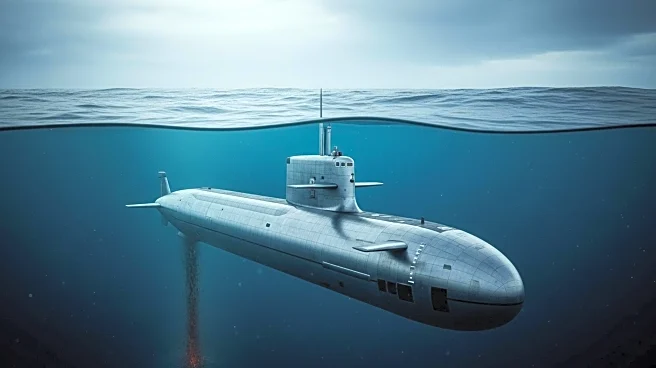What's Happening?
A Russian Kilo-class submarine, the Novorossiysk, was forced to surface in the Strait of Gibraltar due to a significant fuel leak. The submarine, part of the Black Sea Fleet, was previously stationed at the port of Tartus in Syria. The leak has resulted in fuel accumulating in the hold, posing a risk of explosion. Reports indicate that there are no repair parts or qualified specialists on board to address the issue, and the crew may attempt to pump the fuel out into the sea. This incident is part of a series of setbacks for the Russian navy, including damage to the missile corvette Vishnu Volochyok in the Sea of Azov.
Why It's Important?
The incident highlights ongoing challenges within the Russian military, particularly in maintaining and operating its naval fleet. The potential environmental impact of leaking fuel into the sea is significant, raising concerns about maritime safety and pollution. Additionally, the inability to repair the submarine on-site underscores logistical and operational weaknesses. This situation could affect Russia's naval capabilities in the Mediterranean and beyond, potentially altering regional power dynamics. The broader implications for international maritime security and environmental protection are also noteworthy, as such incidents can lead to increased tensions and require international cooperation to manage.
What's Next?
The Russian navy will need to address the immediate safety concerns posed by the fuel leak and determine a course of action to repair the submarine. This may involve towing the vessel to a port with adequate repair facilities. The incident could prompt a review of maintenance and operational protocols within the Russian navy. International maritime authorities may monitor the situation closely to mitigate environmental risks. Additionally, the event could influence diplomatic relations, particularly if the fuel leak leads to significant environmental damage or if the submarine's presence in the region is perceived as a threat.









